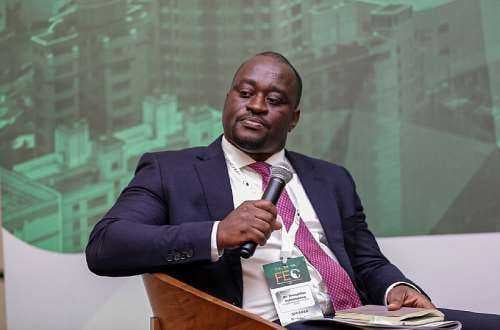Dr. Theo Acheampong, a political risk analyst and economist, argues that declaring a state of emergency to combat illegal mining, or “galamsey,” in Ghana is a short-sighted approach that will not yield sustainable results. He points to the failures of previous military-led interventions, such as Operation Vanguard and Operation Halt, during the former New Patriotic Party (NPP) administration. These operations involved deploying troops to mining sites, but the illegal miners simply returned once the military presence was withdrawn. Dr. Acheampong contends that a state of emergency or the creation of security zones would merely replicate this pattern, providing only a temporary solution without addressing the underlying drivers of the problem. He advocates for a more comprehensive approach focused on structural reforms that target the root causes of galamsey.
Central to Dr. Acheampong’s argument is the need to repeal Legislative Instrument (LI) 2462, which permits mining in forest reserves under specific circumstances. He views this legislation as a significant contributor to the problem, as it empowers the Minerals Commission and other entities to grant mining licenses within protected forest areas. The current ruling party, the National Democratic Congress (NDC), had pledged to repeal this legislation while in opposition. Dr. Acheampong emphasizes the urgency of fulfilling this promise, urging action nine months into their term. He believes that LI 2462 facilitates the very activity it is supposed to regulate, thereby undermining efforts to protect Ghana’s forests from illegal mining operations.
Dr. Acheampong stresses that the focus should shift from reactive, security-driven measures to proactive policies addressing the economic and regulatory factors fueling illegal mining. He highlights the need to understand the supply-side dynamics of the issue. These include the economic incentives that drive individuals towards illegal mining, such as poverty, lack of alternative livelihood opportunities, and the allure of quick profits from gold extraction. He argues that without addressing these fundamental economic drivers, any military or security intervention, however forceful, will be ineffective in the long term.
Beyond the repeal of LI 2462, Dr. Acheampong advocates for a broader overhaul of the regulatory framework governing mining activities. This would involve strengthening regulatory oversight, improving transparency in licensing processes, and ensuring that mining companies operate within the bounds of the law. He also calls for enhanced enforcement mechanisms to deter illegal activities and hold those responsible accountable. Furthermore, he emphasizes the importance of community engagement, involving local communities in the management of natural resources and providing them with alternative economic opportunities to reduce their reliance on illegal mining.
Dr. Acheampong’s analysis underscores the inherent limitations of solely relying on military interventions to combat illegal mining. He contends that such approaches tend to address the symptoms rather than the underlying causes of the problem. The cyclical nature of military deployments, where miners return after troops withdraw, demonstrates the futility of relying solely on force. He argues for a more comprehensive strategy that combines legal reforms, regulatory adjustments, economic development initiatives, and community engagement to create a more sustainable solution.
In essence, Dr. Acheampong calls for a paradigm shift in how Ghana tackles galamsey. The current approach, characterized by intermittent military interventions, has proven ineffective. A more nuanced and comprehensive approach is needed, one that acknowledges the complex interplay of economic, social, and regulatory factors driving illegal mining. This involves not only amending legislation like LI 2462, but also implementing supporting policies that provide alternative livelihoods, strengthen regulatory oversight, and ensure equitable distribution of mining benefits within affected communities. Only through such a holistic approach, he argues, can Ghana hope to effectively combat illegal mining and protect its valuable natural resources for future generations.


